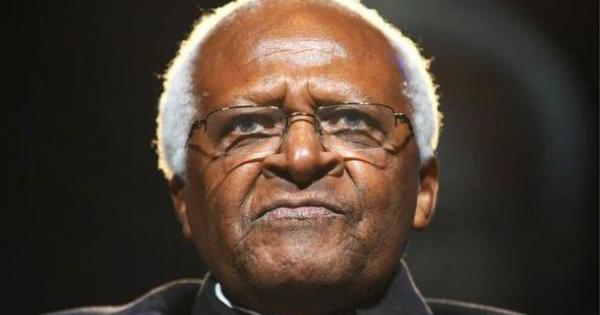
Voice & Viewpoint Newswire
(GIN) – A contentious debate will take place this week in England’s House of Lords on a subject close to the heart of Archbishop Emeritus of Cape Town, Desmond Tutu, now an outspoken advocate for a dignified death at life’s end – something he fears was denied to his best friend and collaborator for human rights – Nelson Mandela.
Tutu, in an editorial this week in The Observer of London, recalls with a touch of bitterness how the 95-year-old President, suffering from a lung infection, incapacitated and increasingly unresponsive, was posed for a photo op with political leaders even when he was barely able to smile.
“You could see Madiba was not fully there. He did not speak. He was not connecting. My friend was no longer himself. It was an affront to Madiba’s dignity,” he said.
“The manner of Mandela’s prolonged death was an affront… I have been fortunate to spend my life working for dignity for the living. Now I wish to apply my mind to the issue of dignity for the dying.”
“I revere the sanctity of life — but not at any cost,” he stressed.
Similar assisted dying bills have already been passed in Oregon, Washington, Quebec, Holland and Switzerland, he pointed out.
Tutu, 82, who was hospitalized last year for a persistent infection, also wrote of his own death.
“I have come to realize that I do not want my life to be prolonged artificially,” he said. “I think when you need machines to help you breathe, then you have to ask questions about the quality of life being experienced and about the way money is being spent.”
“But why is a life that is ending being prolonged? Why is money being spent in this way? It could be better spent on a mother giving birth to a baby, or an organ transplant needed by a young person,” he argued. “Money should be spent on those that are at the beginning or in full flow of their life. Of course, these are my personal opinions and not of my church.”
“People should die a decent death,” he maintained. “For me that means having had the conversations with those I have crossed with in life and being at peace. It means being able to say goodbye to loved ones – if possible, at home.”
Tutu, who chaired South Africa’s Truth and Reconciliation Commission, and admitted he was “angry with God” during apartheid, has never been afraid to take unpopular positions or stir debate. Mandela once said of him: “Sometimes strident, often tender, never afraid and seldom without humor, Desmond Tutu’s voice will always be the voice of the voiceless.”


